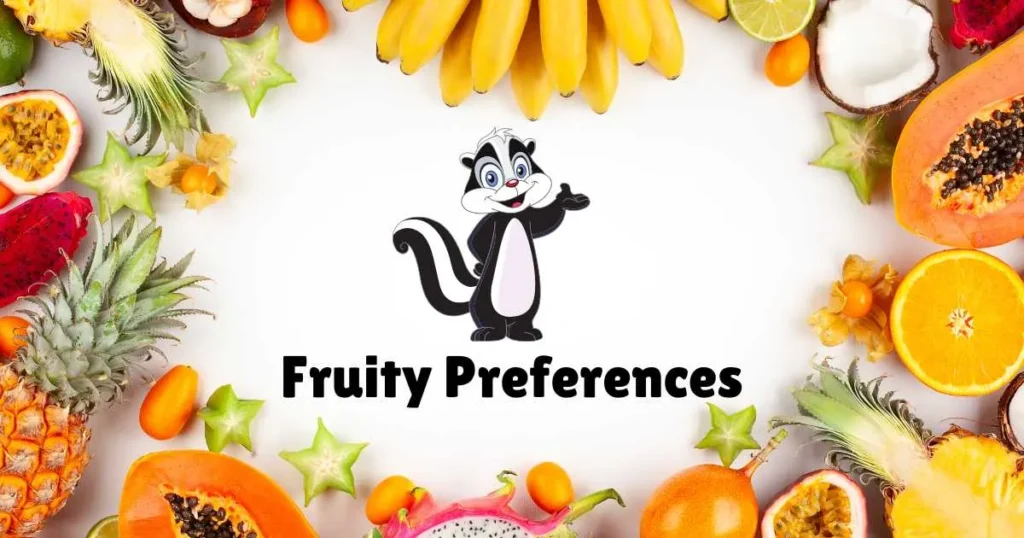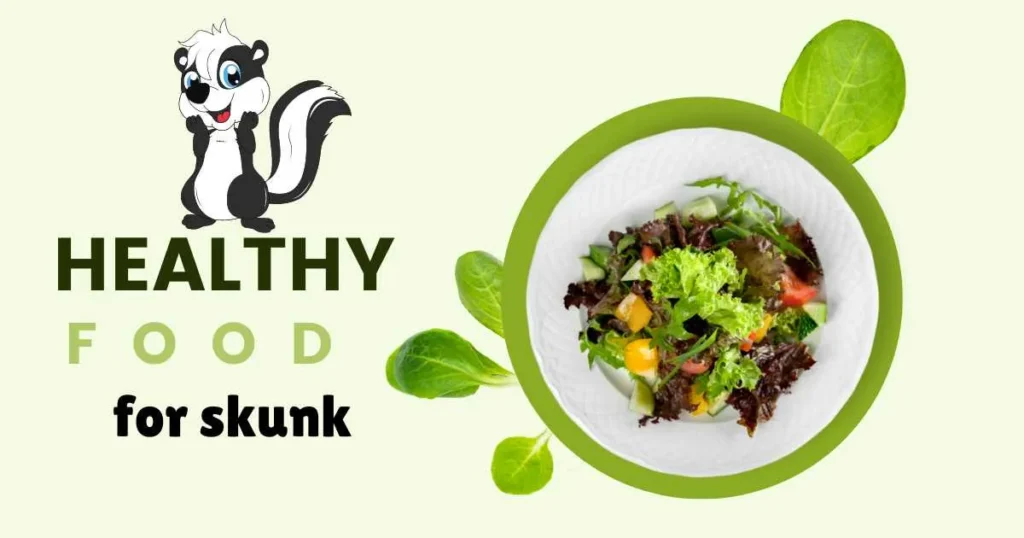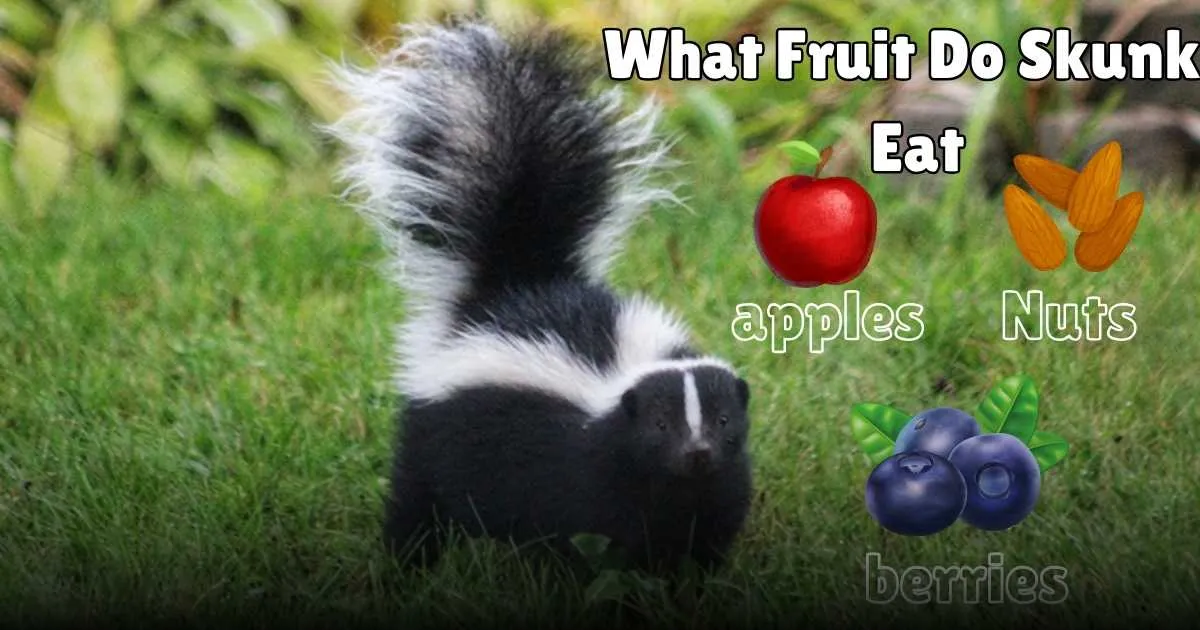Skunks & Fruits: What’s on Their Menu?
As a skunk pet owner and wildlife enthusiast, I’ve learned that these fascinating creatures have a surprisingly diverse diet. Skunks are omnivores, meaning they eat both plants and animals. While they enjoy insects, small mammals, and other protein-rich foods, fruits are an essential part of their diet. Fruits provide skunks with natural sugars, vitamins, and hydration, making them a crucial dietary component, especially in the warmer months.
In this detailed guide, we’ll explore the 20 most favorite fruits that skunks love to eat, why these fruits are beneficial, and tips for feeding skunks responsibly if you encounter them in the wild or have one as a pet.
Why Do Skunks Eat Fruits?
Fruits are a vital part of a skunk’s diet for several reasons:
Seasonal Abundance: In the wild, fruits are plentiful during certain times of the year, making them an accessible food source.aging in your backyard. What’s on its menu? Alongside insects and small rodents, skunks have a sweet tooth for juicy fruits. Explore the variety of fruits skunks savor and learn about the benefits these treats offer to their diet.
Rich in Nutrients: Fruits provide vitamins (like Vitamin C) and minerals essential for a skunk’s health.
Energy Source: The natural sugars in fruits give skunks the energy they need for foraging and survival.
Hydration: Many fruits have a high water content, helping skunks stay hydrated.

20 Most Favorite Fruits Skunks Love to Eat
Let’s dive into the 20 fruits skunks commonly eat, both in the wild and in captivity:
1. Berries
- Types: Blackberries, blueberries, raspberries, and strawberries.
- Why They Love Them: Berries are rich in antioxidants and easy to forage. Their small size makes them ideal for skunks to eat.
2. Apples
- How They Eat: Skunks often nibble on fallen apples in orchards or backyards.
- Nutritional Value: Apples provide Vitamin C, fiber, and hydration.
3. Pears
- Texture Appeal: Soft and juicy, pears are easy for skunks to bite into.
- Seasonal Availability: Found in late summer and fall.
4. Cherries
- Sweetness Factor: Skunks love the natural sugars in cherries.
- Caution: Remove pits to avoid choking hazards if feeding pet skunks.
5. Grapes
- Size and Taste: Their small size and sweet flavor make grapes an irresistible treat.
- Feeding Tip: Limit quantity due to high sugar content.
6. Melons
- Favorites: Watermelon, cantaloupe, and honeydew.
- Hydration Benefit: High water content keeps skunks hydrated during hot weather.
7. Bananas
- Convenient Snack: Soft and easy to eat, bananas are a skunk favorite.
- Nutritional Boost: High in potassium and energy-rich carbohydrates.
8. Plums
- Why They’re Appealing: Juicy and sweet, plums are a seasonal delight for skunks.
- Safe Feeding: Remove the pit before offering to pets.
9. Peaches
- Fragrant and Sweet: Skunks are drawn to the aroma and taste of ripe peaches.
- Feeding Tip: Ensure the fruit is fully ripe for easy digestion.
10. Figs
- Natural Sugar Source: Figs are loaded with natural sweetness and fiber.
- Seasonal Treat: Often available in late summer and early fall.
11. Cranberries
- Tart and Nutritious: These berries are a good source of antioxidants.
- Seasonal Rarity: Often eaten fresh during fall.
12. Papaya
- Exotic Option: Skunks enjoy the soft, sweet flesh of papaya.
- Health Perks: High in Vitamin A and digestive enzymes.
13. Pineapple
- Tropical Delight: The sweetness and juiciness make it a favorite.
- Preparation Tip: Remove the tough outer skin and core before feeding.
14. Oranges
- Citrus Kick: Skunks occasionally enjoy oranges for their tangy flavor.
- Hydration: High water content and Vitamin C boost immunity.
15. Mango
- Soft and Sweet: Skunks are attracted to the tropical sweetness of ripe mangoes.
- Peel First: Remove the skin and pit before feeding.
16. Pomegranate
- Rich in Antioxidants: The seeds are a nutritious snack.
- Fun to Forage: Skunks enjoy the process of eating the seeds.
17. Kiwi
- Exotic Taste: Tangy and sweet, kiwi is a rare but delightful treat.
- Nutritional Value: Packed with Vitamin C and fiber.
18. Avocado
- Caution Required: While the flesh is safe, the pit and skin are toxic to many animals.
- Rich Texture: The creamy flesh is enjoyed sparingly.
19. Tomatoes
- Technically a Fruit: Ripe tomatoes provide natural sweetness and hydration.
- Garden Favorite: Often foraged from backyard gardens.
20. Persimmons
Soft Texture: Easy for skunks to eat when fully ripe.
Seasonal Treat: Available in fall, persimmons are a sweet, vitamin-rich fruit.

Fruits to Avoid Feeding Skunks
While most fruits are safe, some should be avoided due to toxicity or digestive issues:
- Unripe Fruits: Hard-to-digest and can cause stomach upset.
- Grapes in Excess: Too much sugar can lead to obesity or diabetes.
- Citrus in Large Quantities: The acidity can upset a skunk’s stomach.
- Fruit Seeds and Pits: Toxic in some fruits, such as cherries, apples, and plums.
Tips for Feeding Fruits to Skunks
Whether you’re a skunk owner or enjoy observing wildlife, here are some tips for offering fruits to skunks:
- Wash Thoroughly: Remove pesticides and dirt.
- Cut Into Small Pieces: Make it easier for skunks to eat.
- Avoid Overfeeding: Balance fruits with protein and other food sources.
- Feed Fresh Fruits: Avoid canned fruits with added sugar or preservatives.
- Observe Their Preferences: Each skunk may have unique tastes.
The Role of Fruits in a Skunk’s Ecosystem
In the wild, skunks play an important role as seed dispersers. By eating fruits and excreting seeds in different areas, they contribute to plant growth and biodiversity. Their foraging habits also help control insect populations, maintaining a balanced ecosystem.
Conclusion
Skunks love a variety of fruits, from berries to tropical favorites like mango and papaya. Fruits not only provide essential nutrients but also play a role in their ecological contributions. Whether you’re caring for a pet skunk or observing these animals in the wild, understanding their fruit preferences helps you appreciate their adaptability and importance in the natural world.
By offering safe, healthy fruits and respecting their foraging habits, we can coexist with these fascinating creatures while supporting their role in the ecosystem.
Frequently Asked Questions
Skunks often enjoy a variety of fruits, with berries and apples among their favorites. They are omnivores and will eat both plants and animals.
Yes, skunks do eat apples. They often forage for fruits like apples as part of their omnivorous diet.
Skunks are omnivores and can eat bananas. They typically enjoy a varied diet which includes fruits like bananas, along with insects and small animals.
Conclusion
Skunks indeed enjoy fruits as part of their diverse diet. Their fondness for berries, apples, and other sweet treats can impact local ecosystems and gardens. Remember, these black and white creatures are opportunistic feeders. So, while fruit is on their menu, they’ll feast on various other foods too.

